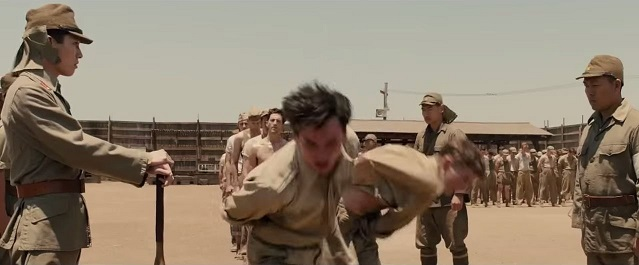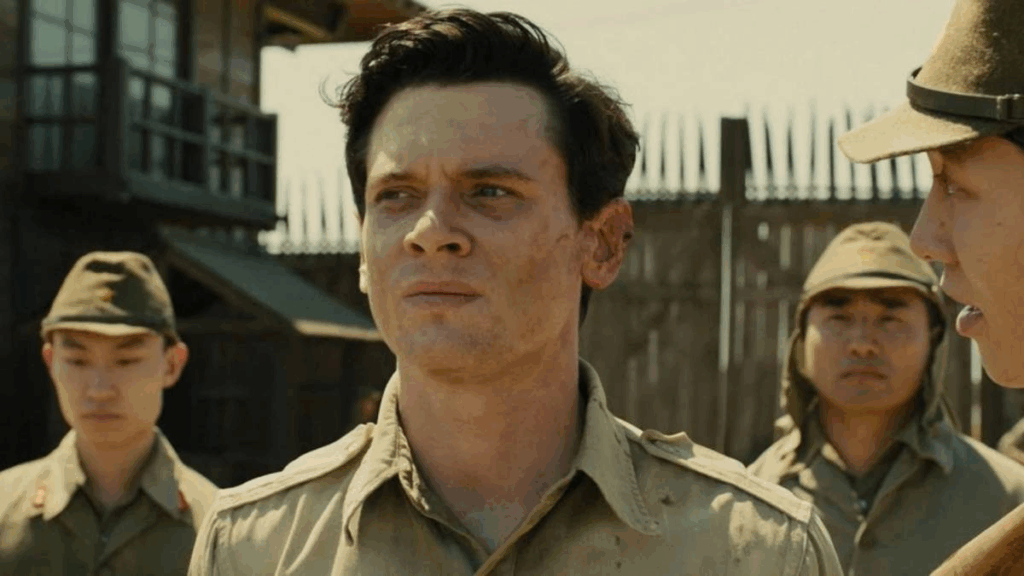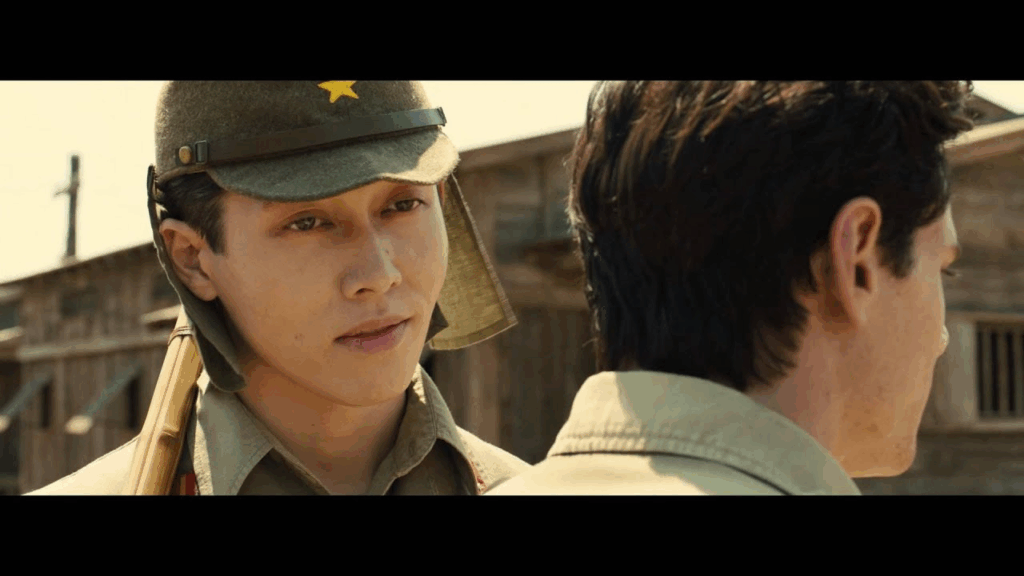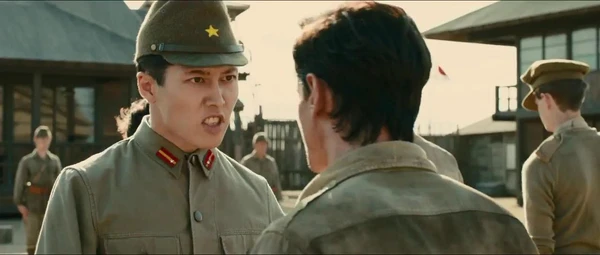UnBroken (2025): A Testament to Family, Courage, and the Unyielding Human Spirit

Overview
UnBroken (2025), streaming on Netflix from April 23, 2025, is a profoundly moving documentary that transcends the boundaries of a traditional war film, offering an intimate and heart-wrenching exploration of family, sacrifice, and survival. Directed by Beth Lane in her feature directorial debut, this cinematic masterpiece chronicles the miraculous true story of the seven Weber siblings—Alfons, Senta, Ruth, Gertrude, Renee, Judith, and Bela—who defied the horrors of Nazi Germany to emerge as the only known family of seven Jewish siblings to survive the Holocaust together. Against the backdrop of a world consumed by war and hatred, UnBroken weaves a tapestry of resilience, love, and the enduring power of human kindness, reminding us that even in the darkest times, hope can shine through.

Inspired by Lane’s personal journey to uncover her mother Bela’s past, UnBroken combines meticulous historical research with raw emotional storytelling. The film takes viewers on a journey across time, retracing the siblings’ harrowing escape from Nazi Germany through archival footage, family letters, and poignant interviews with surviving relatives. With its haunting visuals, evocative score, and deeply human narrative, UnBroken is not just a documentary—it’s a powerful tribute to the strength of family bonds and the courage of ordinary people who risked everything to save lives. Premiering on Holocaust Remembrance Day (Yom HaShoah), the film has garnered critical acclaim, earning awards such as Best Documentary Feature at the 23rd Heartland International Film Festival and Audience Choice awards at multiple festivals.
Plot
Set in the shadow of Nazi Germany’s rise to power, UnBroken tells the extraordinary story of the seven Weber siblings, aged 6 to 18, who faced unimaginable loss and danger after their mother, Lina, was incarcerated and murdered at Auschwitz, and their father, Alexander, a Catholic German who converted to Judaism for love, was marked for a concentration camp. Left orphaned in a war-torn country, the siblings—Alfons, Senta, Ruth, Gertrude, Renee, Judith, and Bela—relied on their youthful bravery, cunning, and the kindness of strangers to survive two perilous years on the run.

The film follows Beth Lane, the daughter of the youngest sibling, Bela, as she embarks on a deeply personal quest to piece together her family’s story. Lane retraces their footsteps across Germany, from Berlin’s shadowed streets to the rural hideouts where the siblings found refuge. Through interviews with her aunts and archival materials—family photos, letters from eldest brother Alfons, and even her grandfather’s concentration camp papers—Lane uncovers a tale of resilience that defies the odds. The siblings’ journey begins with a daring escape, smuggled in the back of a farmer’s truck under the cover of night, and continues through years of hiding in nunneries, farmhouses, and abandoned buildings, always one step ahead of capture.
Each location Lane visits reveals another piece of the puzzle: a laundry hut where the siblings hid, a nunnery that sheltered them, and the homes of courageous strangers who risked their lives to protect them. The film’s emotional core lies in the siblings’ unbreakable bond, which shielded them from despair even as they faced starvation, fear, and the constant threat of betrayal. Yet, the price of freedom was steep. To reach safety in America, the siblings made the heartbreaking decision to separate, a choice that tested their love and left lasting scars. Lane’s interviews with her aunts, now in their twilight years, reveal not only the trauma of their ordeal but also the joy, humor, and strength that carried them through.

Interwoven with this personal narrative is a broader reflection on humanity. Lane asks those she meets—descendants of the strangers who helped her family—if they would risk their lives to hide others today. Their honest, often sobering responses underscore the film’s central question: “When faced with adversity, who do you become?” The story culminates in a celebration of the Weber family’s legacy—72 thriving descendants today—proof that from the ashes of tragedy, love and resilience can build a lasting future.
Key Highlights
- Powerful Performances and Authenticity: As a documentary, UnBroken features no actors, but the real-life voices of the Weber siblings and their descendants bring raw, unfiltered emotion to the screen. Beth Lane’s narration and presence as both filmmaker and family member add a deeply personal touch, making the story feel intimate and universal. The inclusion of archival footage, family letters, and animated sequences to recreate lost moments enhances the film’s authenticity and emotional impact.
- Emotional Depth: UnBroken is more than a survival story—it’s a testament to the power of family and the human spirit. The siblings’ love for each other, their moments of joy amidst despair, and Lane’s own journey to understand her mother’s past create a narrative that is both heart-wrenching and uplifting. The film balances trauma with hope, showing how the siblings found light in the darkest of times.
- Stunning Visuals: Cinematographer Justin Schein captures the haunting beauty of Germany’s landscapes, from Berlin’s bustling streets to the quiet rural hideouts where the siblings sought refuge. The film’s use of archival footage, family photos, and subtle animations creates a visual tapestry that bridges past and present, immersing viewers in the Weber family’s world.
- Evocative Score: The film’s soundtrack, composed with care, blends somber orchestral themes with delicate, hopeful motifs, amplifying the emotional weight of the siblings’ journey. The music underscores moments of tension, loss, and triumph, creating an atmosphere that lingers with viewers.
- Historical and Cultural Significance: UnBroken offers a nuanced portrayal of the Holocaust, focusing on a rare story of survival through the lens of a single family. It highlights the courage of ordinary people—farmers, nuns, and neighbors—who risked everything to help the Weber siblings, serving as a reminder of the power of kindness in the face of evil. The film also draws parallels to contemporary issues, subtly warning against the erosion of freedom and democracy.
- Award-Winning Storytelling: The film’s critical acclaim, including Best Documentary Feature at the Heartland International Film Festival and multiple Audience Choice awards, speaks to its universal resonance and masterful execution. Its premiere at The Paris Theater in New York City, followed by a Q&A with Lane, underscored its cultural impact.
- Universal Themes: At its core, UnBroken is about love, resilience, and the choices that define us. The siblings’ story, coupled with Lane’s reflective journey, invites viewers to consider their own capacity for courage and compassion, making the film a timeless meditation on humanity.

Release Details
UnBroken premiered in select U.S. theaters on February 21, 2025, before making its subscription video-on-demand debut on Netflix on April 23, 2025, coinciding with Holocaust Remembrance Day (Yom HaShoah). With a runtime of approximately 1 hour and 40 minutes, the documentary offers a concise yet deeply immersive experience. It is available to stream in the U.S. and Canada on Netflix, with subtitles and audio descriptions for accessibility. Fans can also access the film through video-on-demand platforms like Fandango at Home, and special screenings have been hosted by organizations like the 92NY Bronfman Center for Jewish Life and the Museum of Jewish Heritage. For those interested in the film’s production, behind-the-scenes content and Q&A sessions with Beth Lane are available through festival archives and Netflix’s promotional materials.
Why You Should Watch
- A Rare Holocaust Narrative: UnBroken tells a unique story of survival, focusing on the only known family of seven Jewish siblings to escape Nazi Germany together. Its blend of personal and historical storytelling offers a fresh perspective on a well-documented period.
- A Celebration of Humanity: The film highlights the kindness of strangers—farmers, nuns, and neighbors—who risked their lives to save the Weber siblings, reminding viewers of the power of compassion in the face of hatred.
- Emotional Resonance: Lane’s personal connection to the story, combined with the siblings’ humor, love, and resilience, creates a narrative that is both heartbreaking and inspiring, appealing to audiences of all ages.
- Cinematic Craftsmanship: From its evocative visuals to its seamless integration of archival materials and animations, UnBroken is a masterclass in documentary filmmaking, balancing historical rigor with emotional storytelling.
- Timely Relevance: The film’s subtle parallels to modern threats to democracy and freedom make it a poignant reminder of the importance of standing against oppression, making it especially relevant for today’s audiences.
- Inspirational Legacy: With 72 descendants thriving today, the Weber siblings’ story is a testament to the enduring power of family and hope, offering a message of triumph over adversity.
Conclusion
UnBroken (2025) is a cinematic triumph that transforms a personal family history into a universal story of courage, love, and survival. Directed by Beth Lane with passion and precision, the documentary brings to life the extraordinary journey of the seven Weber siblings, who faced the horrors of Nazi Germany with nothing but their bond and the kindness of strangers. Through haunting visuals, heartfelt interviews, and a narrative that balances trauma with hope, UnBroken honors the resilience of the human spirit and the legacy of those who refused to be broken. As Lane asks, “When everything is broken… love is the only thing that remains intact,” the film stands as a powerful reminder that even in the darkest of times, family and compassion can light the way.